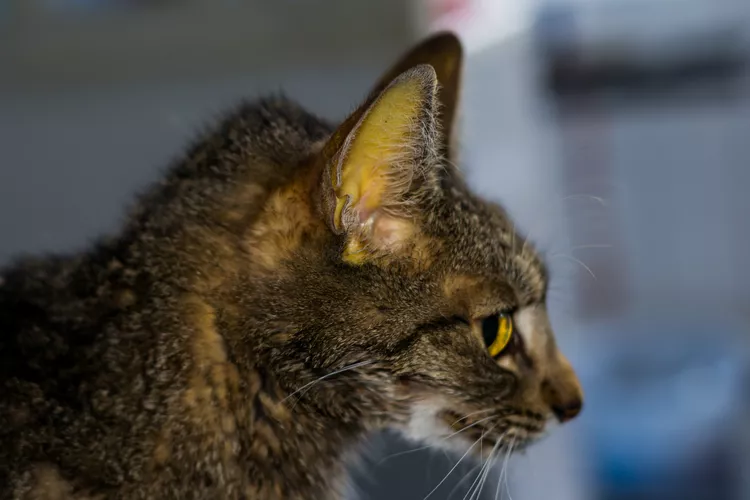
Jaundice, also known as icterus, is a symptom of more serious diseases that causes parts of your cat's body to turn yellow. This condition can be alarming to pet owners, and cats that present this symptom should see a veterinarian as soon as possible. Some breeds of cats are pre-disposed to developing a disease that can cause jaundice. These include the Siamese and Oriental Shorthair cats, or Abyssinians and Somali cats. There are several reasons why a cat may develop jaundice, but some are more commonly seen than others. These causes typically relate to liver disease, red blood cells, gallbladder disease, and other organs. If left untreated, the underlying causes of this symptom can be fatal, so it should not be ignored.
While these conditions can affect any cat, some breeds (including Siamese and Oriental Shorthair cats, or Abyssinians and Somali cats) may be more likely to develop diseases that lead to jaundice. If your cat is one of these breeds, your veterinarian may recommend regular checkups to catch any health issues early.
Jaundice is the yellowing of the skin, eyes, ears, and gums, and it is a sign that the cat has another disease. This condition affects the production of bilirubin in the body, which causes excessive yellow pigment in the blood and tissues when accumulated. If your cat has another disease that relates to the liver, jaundice may begin presenting as well. Knowing more about the diagnosis and treatment of this condition in cats can help you know when it's time to seek help from your veterinarian.
Because jaundice is a sign of other diseases, it may be accompanied by more symptoms caused by the undiagnosed condition. Your cat may experience the following:
Jaundice can be difficult for some cat owners to notice if their cat has a lot of fur, but the inside of the ears, the whites of the eyes, and the gums are the easiest places to see the yellow discoloration.
Cats can become lethargic when they don't feel well. You may notice that your cat is less playful than usual, sleeps more often, or moves slower around the house due to discomfort from other symptoms.
Also referred to as anorexia, loss of appetite is common with several different diseases that relate to jaundice. Going without food can also be a cause of jaundice, as hepatic lipidosis (fatty liver disease) causes the liver to convert fat into energy, which leads to an accumulation of fat in the cells.
You may notice changes in your cat's stool or the onset of vomiting episodes. While vomiting and diarrhea can be caused by a wide variety of feline health conditions, these symptoms may also begin alongside jaundice when your pet has an underlying disease.
Your cat may become dehydrated, leading to excessive water drinking and frequent urination. This can be seen in conjunction with a loss of appetite.
The causes of jaundice are classified as being pre-hepatic, hepatic, or post-hepatic, but all are a result of hyperbilirubinemia. Hyperbilirubinemia is an abnormally high blood level of bilirubin, a component of red blood cells. It is caused by liver disease, gallbladder disease, or red blood cell destruction. Bilirubin is a brown to yellow substance that comes from bile. It is normally excreted in the feces of a cat when the normal process of old red blood cells dying occurs, but if the liver isn't able to get rid of the bilirubin properly, then jaundice can occur. In addition to the liver, gallbladder, and red blood cell destruction, additional causes of jaundice include pancreatitis, intestinal masses, and sepsis.
Any liver disease can be classified as a hepatic cause of jaundice, and there are a number of liver diseases that can occur in cats. Hepatic lipidosis (fatty liver disease) is one of the most common, but cholangitis, feline infectious peritonitis (FIP), amyloidosis, calicivirus, and various liver infections also cause liver dysfunction. Additionally, some medications, toxin exposure, cancer, and other issues can result in liver damage.
These diseases are classified as post-hepatic causes of jaundice. They include biliary duct blockages, gallstones, inflammation of the gallbladder, cancer, and gallbladder rupture.
There are a number of reasons why red blood cells could be abnormally destroyed, which is referred to as hemolysis. These include the ingestion of toxic plants or medications, parasites (including heartworms and ticks), blood transfusion reactions, feline immunodeficiency virus (FIV), feline leukemia virus (FeLV), autoimmune diseases, and even cancer. If red blood cells are destroyed too rapidly and the liver is unable to properly eliminate the bilirubin that is released from the hemolyzed cells, jaundice could occur. These causes of jaundice are typically classified as pre-hepatic.
Your veterinarian will obtain a full patient history and perform a full physical examination before checking your cat's bloodwork to aid in their diagnosis. First, they'll verify whether the disease is pre-hepatic, hepatic, or post-hepatic to determine which additional tests are needed to diagnose a specific cause.
Various information (including bilirubin levels, liver enzyme levels, and details about your cat's blood cells) will be assessed in a complete blood count and biochemistry screening. X-rays, ultrasounds, and fine needle aspirates or biopsies of the liver may also be recommended depending on the results of the bloodwork.
The treatment of jaundice will depend on its cause, but your cat may need to be hospitalized. Supportive care and treatment may include IV fluids, antibiotics, vitamin K, anti-emetics, pain medications, supplements like silybin and SAMe, and even assisted feeding. On occasion, surgery may be indicated if a mass or ruptured gall bladder is suspected.
Like treatment, the prognosis for your specific cat can vary because there are several different diseases that lead to jaundice. Many cats can recover fully from the underlying condition that caused their skin and tissue to become yellowed. However, some cases of jaundice are unfortunately related to fatal diseases. Your veterinarian will provide details about your cat's diagnostics after examination to determine an accurate prognosis.
Sometimes the causes of jaundice are impossible to prevent, but there are some ways that a cat owner can decrease their pet's chances of developing this condition:
Keep all medications, household chemicals, and toxic houseplants out of your cat's reach. Since jaundice can develop from ingesting substances that are toxic to their bodies, this simple method can be effective at preventing a number of diseases. Owners should also avoid exposing their cats to other cats with FIV, FeLV, or FIP.
Ensure your cat does not go more than a day without eating. This can overwhelm the liver and cause your cat to develop hepatic lipidosis (fatty liver disease), which leads to jaundice. On the other hand, your cat should also not be allowed to become obese. Maintaining a normal weight is an important part of overall health.
Keep your cat's vaccinations up to date and have their bloodwork screened regularly. It's also important to use parasite prevention medication. If you are concerned about liver and gallbladder disease in your cat, ask your vet about supplements and special diets to help support these organs.

10 Obscure, Little-known Canine Facts in Honor of National Dog Day
With National Dog Day upon us, it's time to celebrate everything about our favorite pets—even the weirder stuff. Here are 10 obscure facts about dogs you probably didn't know.
Exploring the Different Types of Pet-Friendly Beaches
Are you looking for pet-friendly beaches? Learn about the different types of pet-friendly beaches, their locations, and tips for visiting them with your pet.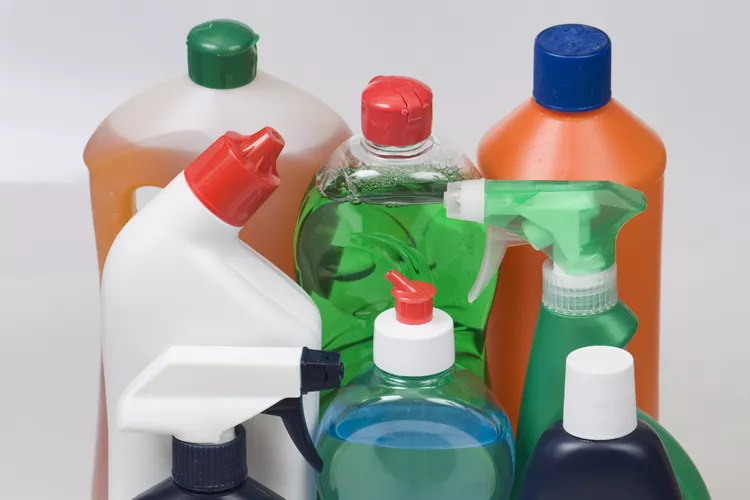
Toxic Chemicals & Household Items That Can Poison Dogs
There are many things in and around your home that can endanger your dog. Learn which chemicals and household items can poisin your dog.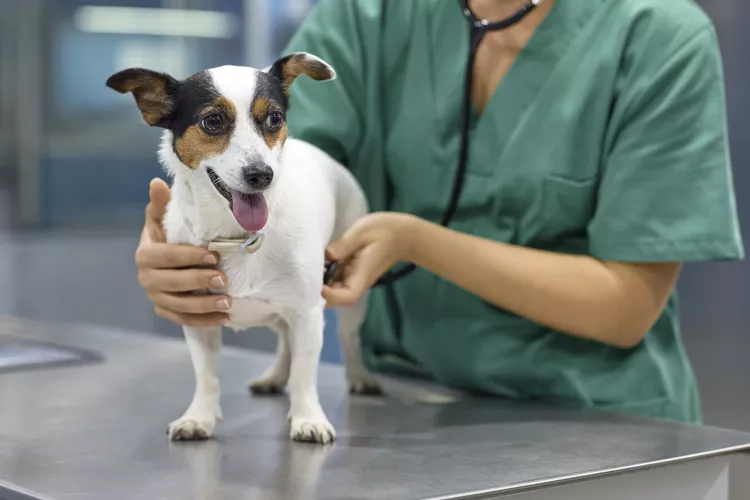
Bronchitis in Dogs
Is your dog coughing and feeling unwell? It could be due to respiratory inflammation called bronchitis. Learn the causes, treatment, and prevention.
Choking in Dogs
A dog can occasionally swallow something incorrectly and start choking. Find out how you can tell if your dog is choking and what you can do about it.
Why Does My Dog Smell So Bad?
Does your dog smell? Find out what could be causing these unpleasant odors and if it's something that needs more than just a bath to fix.
Is Rosemary Safe for Dogs?
Rosemary is used both for cooking and as a supplement with many reported health benefits in people, so you may be wondering if it is safe to give to your dog. Rosemary is considered non-toxic for dogs but with some caveats.
Can Dogs Eat Blueberries?
Dogs can safely eat blueberries. Blueberries are packed with nutrients and can be a great addition to your dog's diet when fed in moderation. Learn more about the benefits, risks, how to incorporate blueberries into their diet, and other fruits dogs can eat.
Dog Food Basics
Are you feeding your dog the best way possible? Check out these dog feeding tips to keep your dog healthy and happy.
Swedish Vallhund: Dog Breed Characteristics & Care
The Swedish vallhund makes for a high-energy and affectionate companion. Learn about the breed's history, health, exercise needs, and more.
Becoming a Show Dog: Getting Started
Do you have the perfect puppy? Have you considered showing her in a dog show? There's much more to showing than showing up! Here's how to get started.
How to Care for a Hairless Cat
Hairless cats make great pets but they aren't without their own challenges and requirements. Read on to learn how to best care for your furless feline.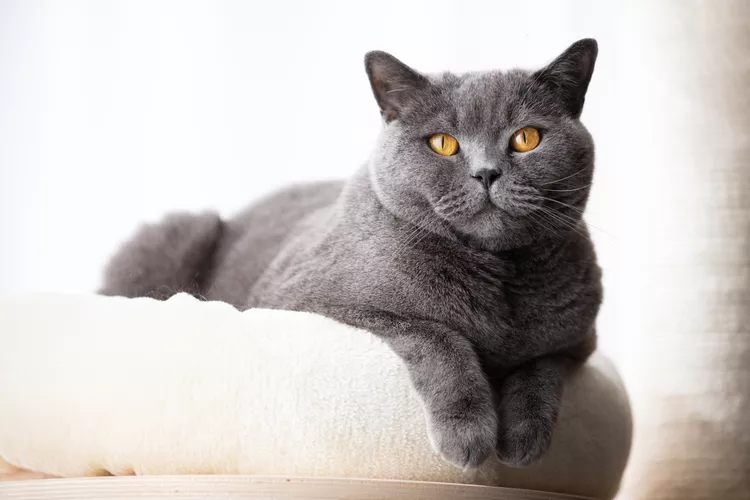
British Shorthair: Breed Profile, Characteristics & Care
The British Shorthair is a calm, affectionate cat that looks and feels like a plush teddy bear. Here's what you need to know about this popular breed, including appearance, temperament, health, and care.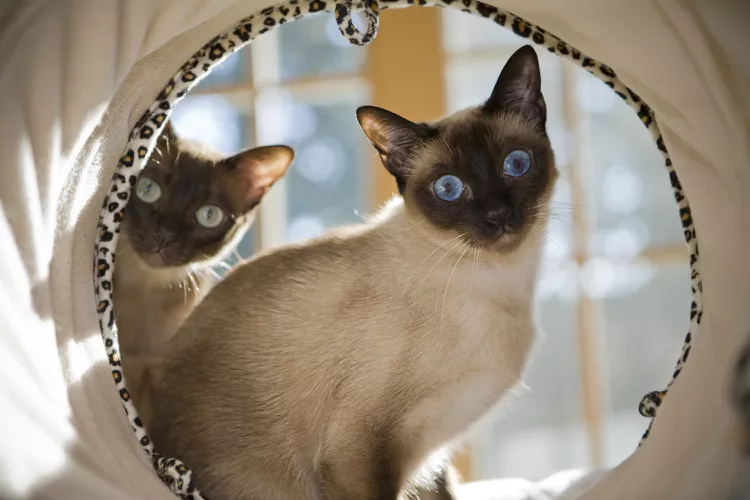
Tonkinese: Cat Breed Profile, Characteristics & Care
The Tonkinese cat is a perfect mix of the Siamese and Burmese—smart, sociable, and sweet. Learn about the Tonkinese breed.
How to Stop Your Cat From Chewing Electrical Cords
Cats are known to pounce and attack inanimate objects, like electrical cords. Learn how to prevent your cat from ambushing objects that may harm it.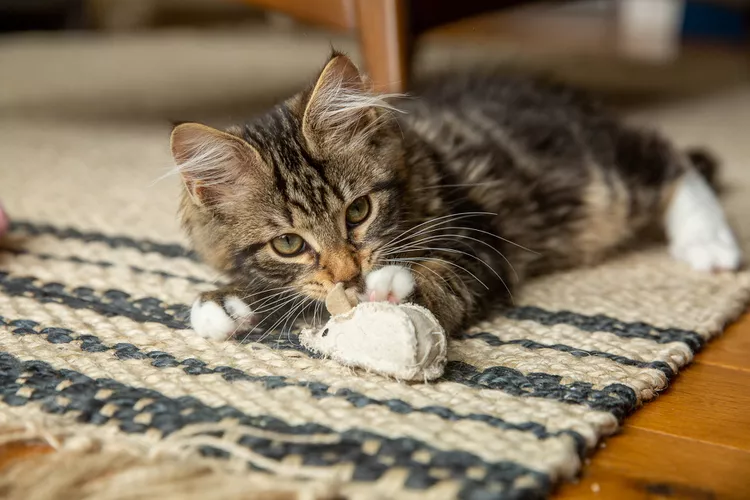
How to Stop Aggression in Kittens
Kittens may show aggressive behavior for several reasons. Sometimes their play gets too aggressive while other times the kitten is afraid or upset. Learn how to spot and curb aggression in kittens.
46 Egyptian Cat Names
Whether inspired by notable Egyptian deities, locales, or pharaohs, Egyptian cat names can bring out the divinity of your noble feline companion.
How to Tell If a Kitten is a Boy or a Girl
If you're wondering whether your new kitten is a boy or a girl, here are three ways to help determine the sex of your cat.
Signs Your Cat Is Aging and When to See the Vet
Expect some changes when your cat ages. Learn to differentiate between normal and potential medical problems for your elderly cat.
Coronavirus in Cats
Feline coronavirus (FCoV) rarely harms cats but can lead to another life-threatening illness. Learn the causes, treatment, and prevention.